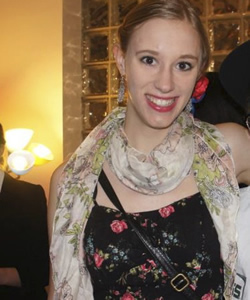Once upon a time, Denmark was a very religious society and on paper it still could be seen as such. After all, there is an official state religion—the Evangelical Lutheran Church of Denmark—that was established in 1536. Enshrined in the Danish constitution is the freedom of worship and of religion, along with provisions for the Danish state to provide some support funding to the official state church. Yet despite all of this, the Denmark I have experienced in the past three months does not put much emphasis on religion. Indeed, I would go as far to say that Denmark is the most secular society I have ever lived in.
In a poll conducted in 2008, approximately 25 percent of Danes identified as atheists, as compared to 6 percent of their American counterparts. This high percentage of non-participation in religion grows even higher when one takes into account that of the Danes who identify with a religion, only about 3 percent of them report going to some type of service or worship regularly. Beyond that religion is something that simply isn’t really talked about in Danish society (except when talking about the integration of Muslim immigrants into Danish culture), as it seen as a very private part of a person’s life that is kept behind closed doors, in the privacy of an individual’s home.
This practice is particularly exemplified when one looks at the role of the religion in Danish politics. Like my fellow blogger, Trishla, I am getting to experience Danish politics as the Danes go about electing their next round of local politicians. I have also heard from various national politicians thanks to my politics professor and his many connections, and in both contexts, I have realized that religion is never discussed in political campaigns. This fact strikes me as fascinating, seeing as how a good deal of discourse in the previous American presidential debate was about how the candidates’ respective religious beliefs would influence their political decisions. It seems that while the United States may have been the first country to declare the separation of church and state, Denmark is the country that has achieved this in reality.
All of this being said, sometimes the lack of value given to religion can give rise to conflicts in Denmark. Denmark is the country that gave rise to the infamous Mohammad cartoons in 2005, whose distribution triggered protests at Danish embassies and boycotts of Danish companies across the Middle East. This crisis just highlights how a secular society like Denmark just does not understand the importance that religion can play in certain societies. Instead, the Danish government used this situation to highlight the importance of freedom of speech in democracy, even though the speech in question can be terribly offensive. More recently in Denmark, there is a brewing controversy as the first mosque is set to open in Copenhagen. The mosque has been preemptively prohibited from calling out the adhan, or traditional call to prayer, because such a call would be a public disturbance. This has caused questions to be raised about the acceptance of Danes when it comes to other religions, especially Islam. Yet, part of me understands the Danish perspective, which maintains that there is no role for ostentatious displays of religion in their secular society, which they have worked so hard to create.
I guess that all that I conclude from this reflection is that there is no easy way to achieve a secular society that achieves the respect of all people in today’s increasingly globalizing world. However, it does not look like that is going to stop Denmark from trying.

